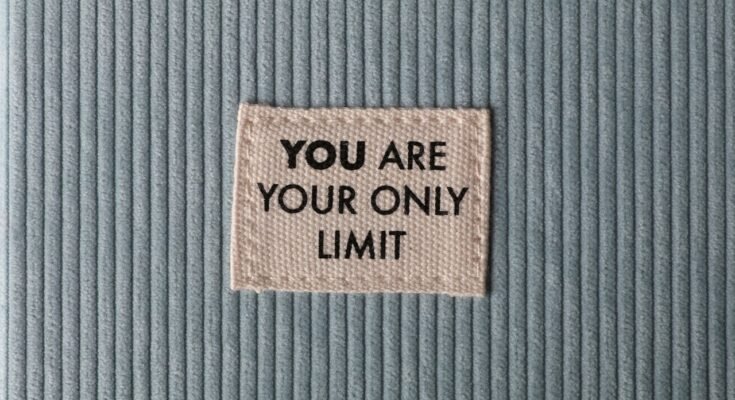I’ve been in your shoes. There was a point in my life when it seemed my life was spiraling out of control. I was
Addicted to porn, wasting hours mindlessly scrolling Tiktok, watch Facebook Reels, and other aspects of social media. I was addicted to my phone, could not exercise self-control whatsoever, and struggled tremendously with communication – I could barely make any conversation worthwhile without getting anxious. I felt miserable, unmotivated, and stuck in an infinite loop of bad habits. I recall the numerous times I went to Google and typed, “How to fix my life.” Again. Again. Again.
I wanted the answer to be somewhere on Google, somewhere that would change my life. If you’re doing that right now, this is for you – you’re not broken, and you’re not alone. Whatever you’re going through isn’t going to last forever. I have gone through that stage, while my experience didn’t resolve overnight, it did resolve. I re-trained my mind, trained my body, developed my social skills, but most importantly, I learned to take responsibility for my life. You can, too.
This is your complete guide on personal restoration—a pragmatic guide you can use to get back in control and rebuild your life from the ground up. Whether you suffer from addiction, lack of discipline, anxiety, or feel as if you have lost your way, this guide will guide you through the process step by step. By the end of this article, you will have a clear plan and mindset to level up every area of your life: mental health, physical health, discipline, confidence, relationships, and the courage to act. If you feel stuck, overwhelmed, or hopeless, feel a little less worry. You’re not the only one who has been there. But you owe it to yourself to rise above. So let’s get started on your transformation now!
Responsibility: The First Step to Fix Your Life

If you would like to change your life, the very first thing you must do is to take “complete responsibility” for everything: your actions, your beliefs, your health, your successes, and even your failures. This is where real personal growth starts. It is easy to blame others. You might say, “My parents didn’t teach me,” or “My environment is toxic,” or “I just have bad luck.” But here’s the truth: **as long as you blame others, you are giving away your control**. Nothing is going to change until **you take charge of your life.**Being responsible is not about blame or guilt — it is about **control**.
When you can accept that everything in your life is your responsibility, then all of the sudden you have control and the ability to change it. That belief is what separates the people who grow from the people who remain stuck.
Think about it: No one is coming to rescue you. Not your friends, not your family, and not society. Waiting for someone else to help you out is the fastest way to get stuck. The hard truth? **It is all up to you**—and that is a good thing. Because that means you are at the wheel now. Taking responsibility means:- Owning your bad habits and deciding to change them- Admitting you wasted time and deciding to be more disciplined- Admitting to your weaknesses and deciding to work on them – Abandoning the victim mentality and adopting a growth mentality.
Self-improvement is impossible without personal responsibility. The moment you say to yourself, “This is my fault, and I can remedy the situation,” you are stepping into a new level of personal power. No matter how far you have fallen, you can always climb back up. But that climb starts with you. You ARE responsible. You ARE in control. You HAVE the power.
Taking responsibility means building the habits that lead to real progress. One of the most important is self-discipline. I explained how it connects to success in this post on building self-discipline.
Mental Health: Rebuilding Your Mind from the Inside Out
Your mind is your foundation. If your mental health is inconsistent, then everything else like your discipline, physical health, your relationships, and even your motivation will fall apart. That is why improving mental health is so important to repairing your life. I experienced the feeling of being trapped inside of my own head. My mind was cluttered with anxiety, negative thoughts, comparing myself to others, and scrolling through digital distractions. I heavily underestimated the negative effects of my mental health on my self-esteem and focus – until I made the change. Once I started to redevelop my mental health, everything else began to improve too. Here are some practical and proven steps to improving your mental health so that you can take back control:
1. Cut back on Social Media Platforms like Tiktok, Facebook Reels, and Instagram, which are engineered to keep you glued to your screen. These are harmful as they erode your attention span and overload your brain with dopamine.
Action Step:
Either limit your screen time to a day or uninstall the original app for 30 days. During those 30 days – read, journal, or learn a new skill instead of scrolling.
2. Fix Your Sleep. Sleep has a direct impact on our mood, focus, and energy levels. If we do not sleep well, we are bound to experience increased levels of anxiety and stress.
Action Step:
Sleep and wake up at the same time every day. Avoid screens one hour before bed.
3. Establishing a Daily Gratitude Habit . Gratitude shifts your focus from what’s wrong to what’s right. Gratitude rewires your brain to be positive.
Action Step:
Each morning or evening, write down 3 things you are grateful for, and do this on a daily basis. This sounds really easy, but it works!
4. Participating in Mindfulness and Meditation. Mindfulness increases awareness and keeps you in the moment. Mindfulness decreases anxiety, rumination, and emotional reactivity.
Action Step:
Each day, sit in silence for 5–10 minutes. Focus on your breath. When you notice your mind wandering, gently bring it back. Use apps like Headspace or Calm, if that works better for you.
5. Journaling provides an opportunity to release stress, self-organize your thoughts, and note emotional patterns.
Action Step:
Write freely about your day, your thoughts, your goals, or any problems you are grappling with. Journaling increases self-awareness and mental clarity.
6. Move Your Body: When you move your body or exercise, you release endorphins into your body, which helps decrease stress. Exercise can naturally act as an antidepressant.
Action Step:
Begin with a daily walk, start slow with bodyweight movements, or just stretch yourself; you want to establish movement every single day!
7. Be Kind to Yourself.
voice in your head determines your outer world. Negative self talk will decrease your belief in yourself.
Action Step:
Pay attention to what you say when you say “I’m stupid” or “I can’t.” Change it to “I’m learning” or “I’m getting better.”
8. Ask for Help When You Need It. There is power in reaching out.
Action Step:
If you feel overwhelmed, talk with a therapist, counselor, or trusted confidant. Restoration and healing start with truth.
Improving mental health will improve every other area of your life. A calm and focused mind is a powerful tool for success and change.
Porn addiction silently damages mental health, especially in teens. If that is something you’re dealing with, check out my story on overcoming porn addiction.
Physical Health and Building an Aesthetic Physique
Improving your physical well-being is one of the quickest ways to improve your life. When you look good, you feel good, and when you feel good, you present yourself differently in all aspects of life. It is often said that physical transformation does not just change your body; it changes your discipline, confidence, energy, and mental fortitude.
You don’t need to be a bodybuilder or a professional athlete to capitalize on the many benefits. You need to commit to your body’s well-being and be consistent, intentional, and put effort into it. Your physical well-being is the foundation for high performance in life. Ways to enhance your physical well-being and develop an aesthetic physique if you are starting at zero are:
1. Improve your diet first. You can’t outwork a poor diet. Your diet influences your mood, energy, focus, and body composition.
Practical next steps:
Start eating whole foods: eat lean protein (chicken, eggs, Greek yogurt, fish), complex carbohydrates (rice, oats, sweet potatoes), or healthy fats (avocados, nuts, olive oil) first.
Drink more water: 2–3 liters is often a good amount for most people. Most people live in a state of chronic dehydration and don’t recognize how much it influences their energy and focus
.Cut out junk (slowly).
2. Establish a Basic, Consistent Workout Routine -You don’t need to spend long hours in the gym. It’s all about being consistent and putting in the proper effort.
Practical Steps:
Try starting with bodyweight exercises in the comfort of your own home: pushups, squats, planks, lunges, and burpees
.Set up a plan of 4-5 days a week of training by mixing resistance training and some sort of cardiovascular work. You can approach full body training 3 days a week and then have active rest (walking or stretching) on the other days
.As you get stronger, increase your reps, or sets, or weight. Track your workouts to ensure you see growth in your workouts and your body.
Once you’re ready, I encourage you to locate a gym facility. Going to the gym will not only structure your workouts, but push you as well
.3. Sleep and Recovery Are Important
While you are resting, your body does most of the growing and repairing. If you sleep poorly, your progress will hit a wall, both physically and mentally.
Practical Steps:
Try to sleep 7-9 hours a night. You also need to create a sleep routine once you sleep; meaning limiting, if not eliminating, all electronic device screen time at least two hours prior to sleep. The temperature of your room is also key; try a cool temperature.
Finally, consistency is key; try to sleep and wake at the same time every day.
Also take your rest days seriously. Training and overtraining are two distinct things. Overtraining often leads to plateaus, that can lead to boredom, lack of progress, non compliance, and possible injury.
4. Walking More Each Day–Walking is really a missed opportunity. Walking helps you burn fat, improve your mindset, and heart health.
Practical Steps:
8,000-10,000 steps daily is the goal.
Take walks after meals to help with digestion and blood sugar.
Use your walks as breaks to refresh your mind and refocus during the day.
5. Track Your Progress-Tracking creates momentum and motivation. It encourages accountability and tangible results.
Practical Steps:
Take progress pictures weekly, front, side and back are best. The scale can lie, but pictures document the obvious!
Track workouts, weight, and take measurements (waist and arms).
Just a notebook, Google sheets, or a fitness app is best!
6. Embrace the Journey, Stay Disciplined Transformation takes time. You will have days when motivation disappears to build discipline. Fall in love with the process, not just the outcome. Realistically, improving your physical health isn’t just about looking better. It’s about getting stronger, creating discipline, and instilling confidence in everything you do. When your body is healthy, your mind is powerful – and that can create a beautiful concoction.
Social Skills and Relationships: Build Confidence and Meaningful Connections
No matter how disciplined, how smart or intelligent, how accomplished, you simply need people. Life isn’t meant to be lived alone. This is no dig against you, it’s a nod to our deeply embedded social interconnectedness and how paramount possessing strong social skills and healthy relationships is to addressing the matter of our lives.
Having those skills will build your confidence, decrease feelings of loneliness, and allow you to take advantage of opportunities you perhaps believed were off-limits to you at an earlier stage. To provide you with greater confidence I will share with you my personal experience with social anxiety. I was anxious about socializing. I continuously worried about my inability to think of things to say that would keep the momentum of the conversation flowing.
Everywhere I went, I felt self-conscious about maintaining eye contact and over-analyzing every word that came out of my mouth. But once I began developing my communication skills, my confidence, respect, sense of connection, and ability to positively engage others improved tremendously. And the best news of all? You can learn to be socially proficient, just as you learn how to do things- it’s a skill.
So, here’s how you develop the ability to socialize and build healthy, productive relationships:
1. Start small and Practice everyday-If you are shy or socially anxious, it doesn’t mean that you cannot practice socializing. You don’t have to become super outgoing overnight.
Real Life Solution: You just need to say “hi” or smile to the cashier, the security guard or the person in the elevator, or your neighbor. If you want to ask questions, ask simple questions, like “How’s your day going?” or, you know, a question that the person can easily engage with and add to. Practice simple small talk conversations with one new person a day. Repeated small talk is the foundation where social confidence almost builds-upon itself.
2. Connect with Eye Contact and Body Language. People trust and respect those who have open and confident body language.
Real World Solution: Sit up tall, shoulders back, and keep your hands out of your pockets. When listening and talking, maintain eye contact, but don’t stare. A good rule of thumb is to look at someone’s eyes 70-80% of the time. Don’t cross your arms; it shows you are closed off.
3. Start Listening Better. Most people are simply waiting for their turn to talk. You will be seen as special when you actually listen.
Real-World Solution: Ask questions like “What do you mean by that?” or “How did that make you feel?” Repeat keywords they say to let them know you are really listening. Don’t interrupt; let them finish before you chime in.
4. Engage in Social Situations that Interest You. You can’t improve your social skills if you remain isolated. Improvement will require practice in the real world.
Real World Solution: Join a gym or local club, take a language class, get involved in a book club, or volunteer. Attend meetups or workshops related to something you enjoy. Put yourself in social situations where conversations happen easily.
5. Remove Toxic People and Establish Genuine Connections-You will become those you hang around. The same people that are always negative, problematic, and self-serving are the ones that zap your energy and work to hold you back.
Real-Life Solution: Figure out who those individuals are who are always negative, disrespectful, or manipulative—and then slowly disengage with those individuals. Spend time with those who uplift you, challenge you, and respect you. One good friend is better than ten losers. Quality over quantity.
6. Handle Rejection or Awkwardness- Like a Boss. You will experience rejection, awkward pauses, and stumbles socially. It’s part of life.
Real-life solution: Don’t overthink it. Most people will forget about any awkward moment within minutes. Just laugh it off, learn from it, and keep on going. All interactions that don’t go as planned are one step toward mastery. Confidence is built through discomfort, so lean into it.
7. Be Authentic and Kind-People love authenticity. Don’t pretend to be someone you are not to fit in. Just be the best version of yourself.
Real-Life Solution: Say things with truthfulness, not to impress people. Be genuinely interested in other people. Apply curiosity, not judgment. Demonstrate kindness without expectation. When you develop your social skills, you not only improve your relationships—you increase your self-worth, leadership, and happiness. Each encounter is an opportunity to grow.
Taking Action: Stop Overthinking, Start Moving
This is where everyone gets stuck. People read every self improvement article, watch every motivational video, and plan a “perfect routine”, but they never **take action**. Let me hit you with something real; **nothing changes until you do!
You don’t need more information – you require more execution. You don’t need a 30-step morning routine or the perfect gym plan; you need to start small, stay consistent, and stop waiting for “the right time. “If you look back to when I began my journey, I started with simple things.
The first step was to make my bed every day. The second was that I put the phone down instead of scrolling every time I had the urge. The third step was to take cold showers. Then, I started doing push-ups on my own in my room. Each small step built momentum until, after time, I became the kind of person that follows through; that is where confidence is built.
Here are some real, practical action steps to start fixing your life today:
a). Make your bed every morning – this builds discipline and gives you a small win to start the day.-
b).Drink a full glass of water after getting out of bed** – hydration and immediate energy.-
c).Move your body – even if that means 20 push-ups, a walk or a good stretch.
d).Clean your room or workspace and keep it clean
e).Set a goal per day and ensure you finish it.
What’s important is consistency, not intensity. Big transformation comes from many small actions that are repeated. Stop waiting for motivation. Act even when you don’t feel like it. That is the difference between a dreamer and a doer. Discipline is not something you are born with; it’s something you develop by consistently showing up each day. Start small. Start today. Your future self is waiting.
If you have read this far, you are serious about making a change. One video that helped me understand this better is by Hamza Ahmed.
He talks directly to young men about how to fix their lives through discipline, responsibility, and action.
Watch it here: https://youtu.be/PYaixyrzDOk?si=szxr1Vis-MFt6CEf
Credit: This video was created by Hamza Ahmed. I am only sharing this to support his powerful message.




6 Comments on “How to Fix Your Life : Full Self-Improvement Guide”